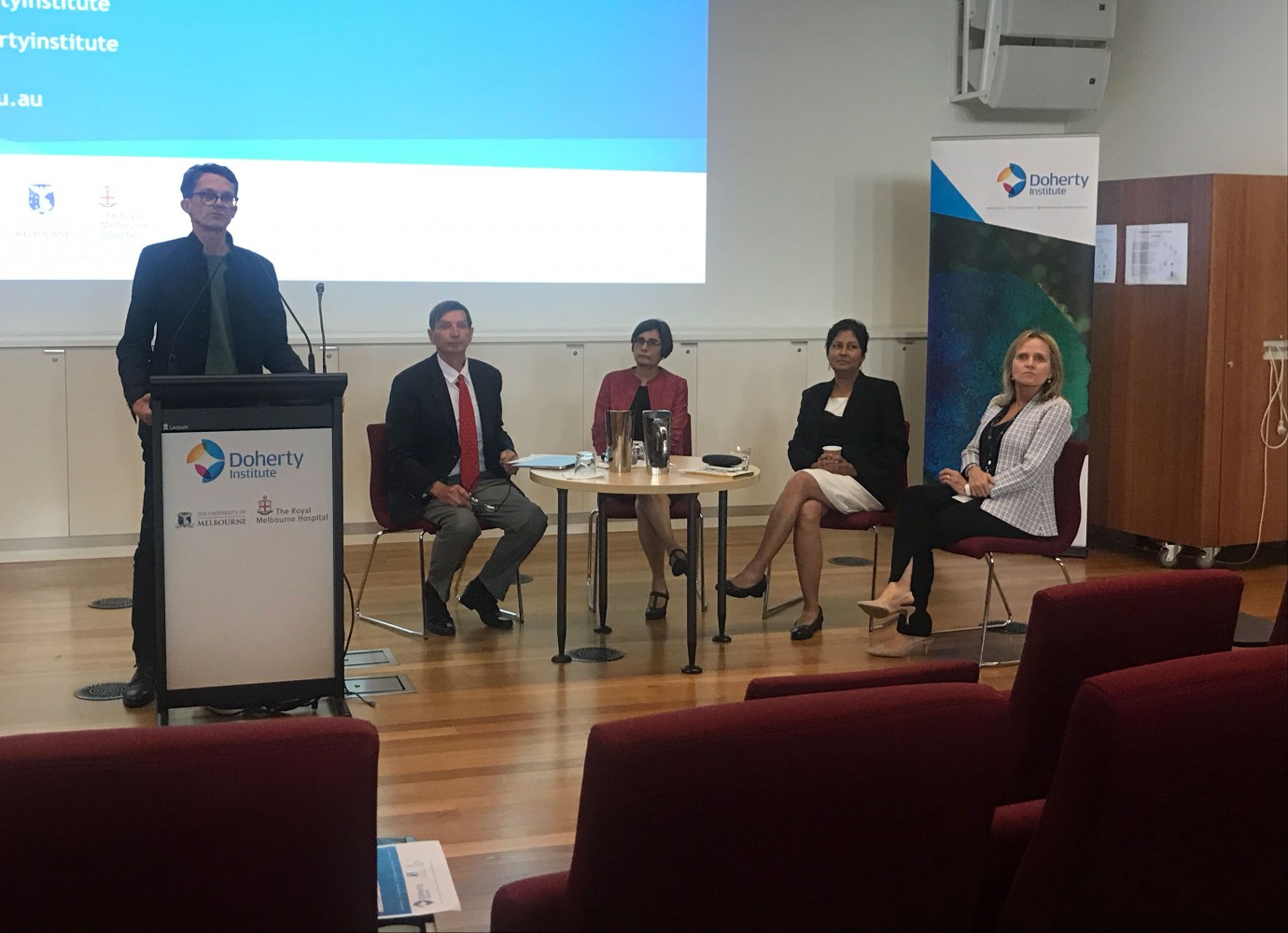26 Feb 2019
Professor Kang delivers keynote address at Vaccines in the 21st Century
Continued research, collaboration and improved community education are some of the key factors that will improve vaccine development and uptake, according to experts speaking at the Doherty Institute’s Vaccines in the 21st Century symposium on Thursday, 14 February.

Keynote speaker, Professor Gagandeep Kang, Executive Director of the Translational Health Science and Technology Institute in India, was joined by a series of distinguished speakers to provide an overview on the current state of affairs globally for a wide range of vaccines.
The symposium was opened by Laureate Professor Peter Doherty who provided an overview of modern vaccine development, commenting that a lack of understanding of how vaccines work has led to a rise in vaccine hesitancy. He stressed that a vaccine introduces a much smaller amount of antigen into the body than a natural infection encountered in day-to-day life.
Professor Kang delivered the keynote speech on The rotavirus vaccine story: developing and evaluating vaccines in India.
Rotavirus is a huge problem in India with one in every 350 children dying of the disease. Professor Kang highlighted that vaccine suitability is just as much about cost as it is efficacy. For example, whilst the first rotavirus vaccine demonstrated 85-90 per cent efficacy, it was much too expensive for widespread utilisation in India.
Conversely, affordable vaccines were found to have much lower efficacy in Indian children.
Whilst the cause of this discrepancy in efficacy is still not fully understood, India has made strides in developing novel solutions, with two home-grown rotavirus vaccines currently in development with the potential to save 30,000 children a year.
One of the most thought-provoking presentations of the day came from Head of Infectious Diseases Unit at The Royal Children's Hospital Melbourne, leader of the Infectious Diseases at the Murdoch Children’s Research Institute and University of Melbourne Professor of Paediatric Infectious Diseases, Nigel Curtis. He talked about the non-specific effects of vaccines, with the BCG vaccination for tuberculosis (TB) proven to reduce mortality rates for other infections, including pneumonia and childhood leukaemia, by mechanisms which are still being unravelled.
He also discussed the need to carefully evaluate the impact of vaccine programs but in a way that doesn’t undermine the integrity of those which are already successfully controlling infectious diseases.
The final talk of the day was a panel discussion featuring Professor Kang, Doherty Institute Director Professor Sharon Lewin and Professor Kanta Subbarao, Director of the WHO Collaborating Centre for Reference and Research on Influenza at the Doherty Institute. Chaired by University of Melbourne Emeritus Professor Graham Brown, the panel discussed the future of vaccines and disease prevention.
Professor Subbarao stressed the importance of collaboration, praising events like this for opening up potential channels.
Professor Lewin agreed, adding that it is important to think of collaborating with industries beyond our usual networks.
In an apt end to the discussion, and the day, Professor Kang commented about vaccine hesitancy in an era where people may not have seen the disease being vaccinated against, and in doing so, linking back to Professor Doherty’s opening comments regarding a lack of community education.


